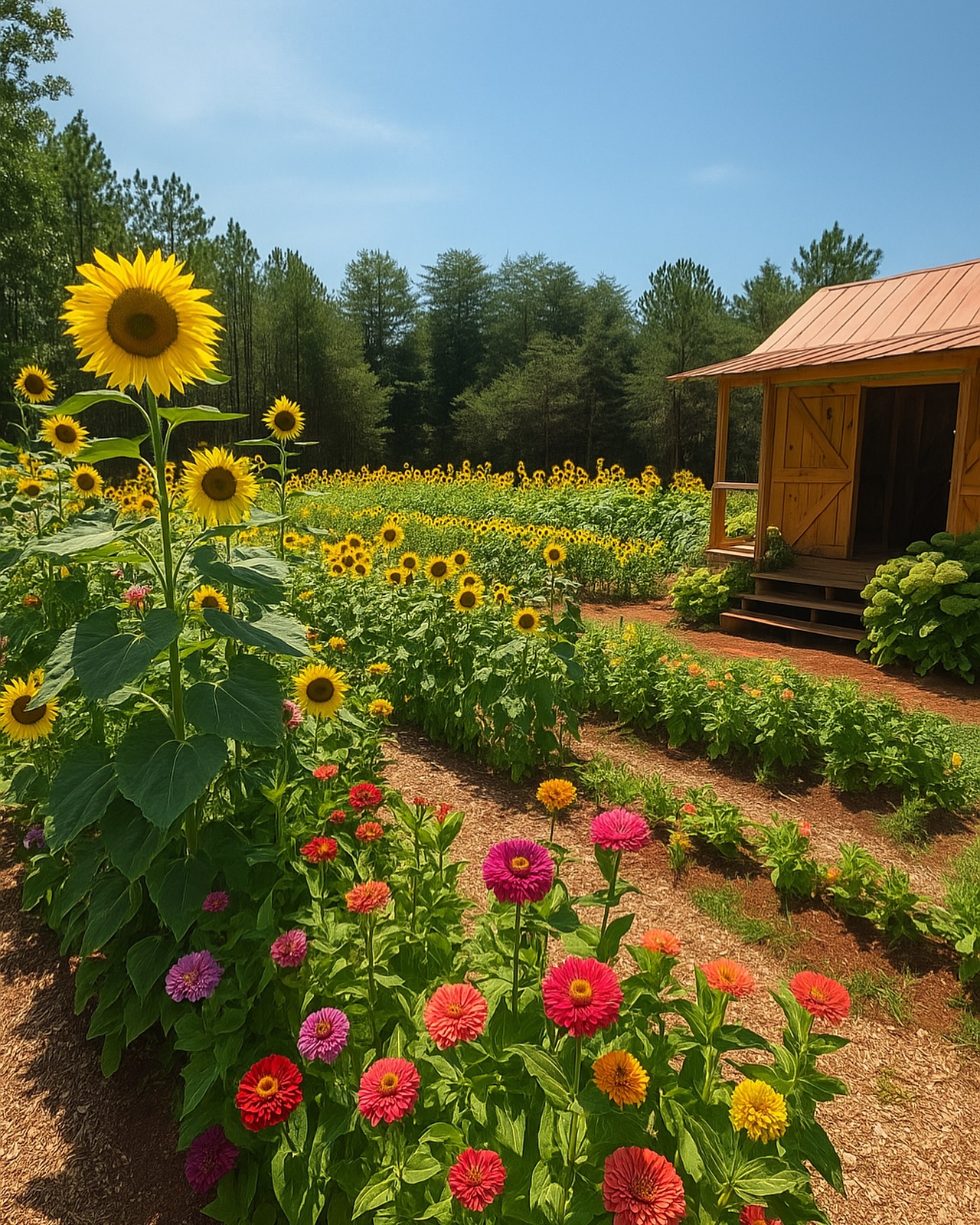A feeling of home
Published 12:24 pm Wednesday, November 1, 2023
|
Getting your Trinity Audio player ready...
|
A couple of weeks ago I was walking to the mailbox on our driveway. It brought back memories from the past when there was no bridge across Camp Creek. That meant that we had to park our car at the creek, walk on a step bridge across the creek, and then walk another three-quarters of a mile to our house. I carried the baby in a backpack and Allen carried the groceries; we ate a lot of easy-to-carry dried foods in those days. One thing that we never had to worry about on that one-lane dirt road was any on-coming traffic!
I recently walked to the mailbox and back (with no backpack and no children for distraction) and took time to look at the creek, the little waterfall and the trees. Long before we bought the property there was a grist mill at the waterfall for grinding corn for the surrounding community farmers and moonshiners. The grinding stones were at the bottom of the falls when we moved in, but since then they have washed downstream somewhere.
Then I started thinking about people who had lived here in the past. There were no school buses, so the children walked the three miles to town on Monday, stayed the week with friends and relatives in town and then walked back home on Friday. The parents were homemakers, subsistence farmers, moonshiners – homesteaders doing their best to make a living. Most of them moved away during the depression: Duke Power offered to buy the land with plans to build a hydroelectricity plant on Camp Creek.
Trending
The struggling locals were glad to move somewhere else where they could find work, mostly at the textile mills in SC and the NC Piedmont. Keep in mind that the only real cash crop for these people had been moonshine, profitable during prohibition. But those profits evaporated when liquor became legal and the liquor companies took control. The only family that did not sell out to Duke Power was the one who owned our house and 9 acres. The family sold the place 15 years later to some ‘summer folks’ after the children were all gone and their father had died, then we bought it in 1978 after the bridge had washed out in the flood of 1977.
That day I spent a few minutes, simply looking at the trees and the water, trying to imagine what those early residents had thought about the beautiful trees and clean water that I was seeing. Obviously, Duke Power had thought of it only in monetary terms: they clear-cut all the trees shortly after they bought the land, kept it a while, and then put it on the market when the power plant plans were abandoned.
Did the early folks treasure those trees as much as we do, for their beauty and protection, and security? Did they realize how valuable the clean springs are, or did they want to move to town where the water came out of a spigot in the kitchen? Did they ever think that there might be a time when clean springs surrounded and protected by a hardwood forest would be rare?
I suspect that the answer is “no.” They were looking at the conveniences of cars, city water, central heat and electricity—all those things that we take for granted nowadays.
Did they realize that they could always be safe and warm without electricity or central heat or city water? In our age of convenience, how many of us can say that? Yes, we now have so many modern conveniences, but has the cost of those conveniences been at a loss of self-sufficiency and security.
Standing on that old driveway, I felt a feeling of security, a feeling of ‘home,’ of contentment. In our modern society, we must “go where the jobs are.” We know so much more about different places, and cultures. But, let us not forget that all of these modern conveniences come at a huge cost. How many trees have been cut down to build new powerlines and cell towers so that we can all have our computers and cell phones? How many trees—trees that suck up carbon so that we can breathe clean air—have been cut for our highways and our huge front yards? How many life-giving springs have been contaminated by commercial and residential development?
Trending
There are no easy answers to those questions, but we can think of those questions when we make decisions, and we can take time to give thanks for the trees that are still left. I will still wonder: did our forefathers have any idea of the gifts that this earth provides for our subsistence? Do we?





